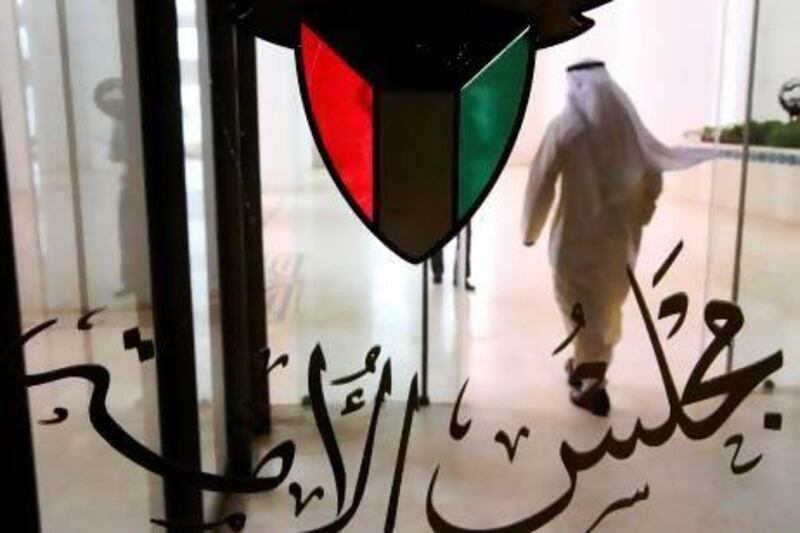ABU DHABI // Kuwait was headed yesterday for fresh elections after the Constitutional Court dissolved parliament and struck down a challenge to a new electoral system introduced by the emir.
Sheikh Sabah Al Ahmad Al Jaber Al Sabah was expected to address the nation last night in the wake of the verdict in a case that has dominated newspaper headlines, tea parlour conversations and social media for months.
The sharply differing reactions to yesterday's verdict mirrored how politically polarised Kuwait has become over a dispute that was seen as a test case of the emir's power in the Arabian Gulf's most boisterously democratic political system.
The minister of information, Sheikh Salman Sabah Al Salem Al Hamoud Al Sabah, said the government "respects the rule of law on any verdict issued by the Constitutional Court".
Government opponents and critics, on the other hand, expressed disappointment with the court ruling.
"If you think this is about the electoral system you've been missing the point," one anti-government activist tweeted. "It's about unchecked power."
The landmark court case stemmed from a decree by the emir in October, in which he said voters could no longer cast ballots for four candidates. In the future, he said, they could vote for only one candidate.
Opposition groups argued that the new rules would limit their ability to form coalitions. What also angered them was the timing of the edict: it was issued while parliament was out of session and just six weeks before scheduled elections.
Although the constitution allows for emergency decrees in such situations, the opposition had argued that this particular change - and any other major policy decisions - should pass through the parliament before taking effect.
Throughout the autumn, hundreds of thousands of Kuwaitis protested against the new rules, and the opposition boycotted elections in December, which had a record low turnout of 43 per cent.
Yesterday's court ruling addressed 56 separate appeals filed against the election law. The verdict said the government was entitled to change the electoral law "to achieve the higher interests of the state".
The court ruling also dissolved parliament on the ground that the electoral commission overseeing the December election was illegal, and reinstalled a parliament elected in 2009.
Under Kuwaiti law, the emir sets the date for elections, and most observers expect them within two months. With the emir's announcement, the opposition will face an immediate dilemma.
Having boycotted the December elections, they entered 2013 facing the prospect of four years outside the halls of power, without a single seat in parliament.
That contributed to fragmenting Kuwait's broad-based opposition - which encompassed a diverse group of youth, Islamists, Salafis, tribalists and liberals - into several factions throughout the spring.
The court case had offered another rallying point, and opposition figures portrayed the verdict as a test of democratic openness in Kuwait.
"We are at a crossroads," the former parliamentary speaker Ahmed Al Sadoun said before the ruling on Saturday. "Either we go back to stability or bypass the constitution and head into the unknown."
But analysts now say the court's verdict and new elections will put the opposition in a tight spot.
"The opposition now has to decide if they want to continue to stay outside the electoral process or decide to join again under a system that they protested [against]," said Wafa Al Sayed, an analyst on Kuwait at the International Institute for Strategic Studies.
Youth activists said there were no immediate plans for demonstrations. On Friday, Kuwait's interior ministry said a verdict from the constitutional court "should not lead to any illegal acts or disruption of peace", and warned it would shut down unauthorised rallies after the ruling.
twitter: For breaking news from the Gulf, the Middle East and around the globe follow The National World. Follow us





